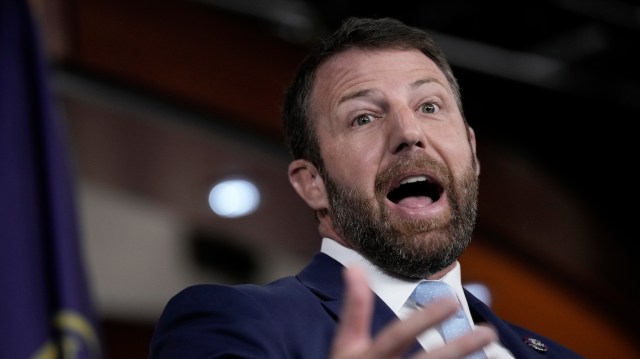Partisan Crossfire: Mullin Blasts Democratic Lawmakers Over Laken Riley Act Vote

In a heated exchange on Wednesday, Sen. Markwayne Mullin (R-Okla.) accused Democrats of political grandstanding over the Laken Riley Act. During an interview with NewsNation's Blake Burman, Mullin argued that Democratic lawmakers supporting the legislation were merely "playing politics" rather than genuinely addressing the underlying issues.
The senator's comments come in the wake of intense national debate surrounding immigration policy and public safety. Mullin's critique suggests a deep partisan divide on how to approach immigration-related legislation, with each side attempting to frame the narrative to their political advantage.
While the specifics of the interview were not fully detailed, Mullin's statement highlights the ongoing tension between political parties on matters of border security and immigration enforcement. His remarks underscore the complex and emotionally charged nature of these policy discussions.

